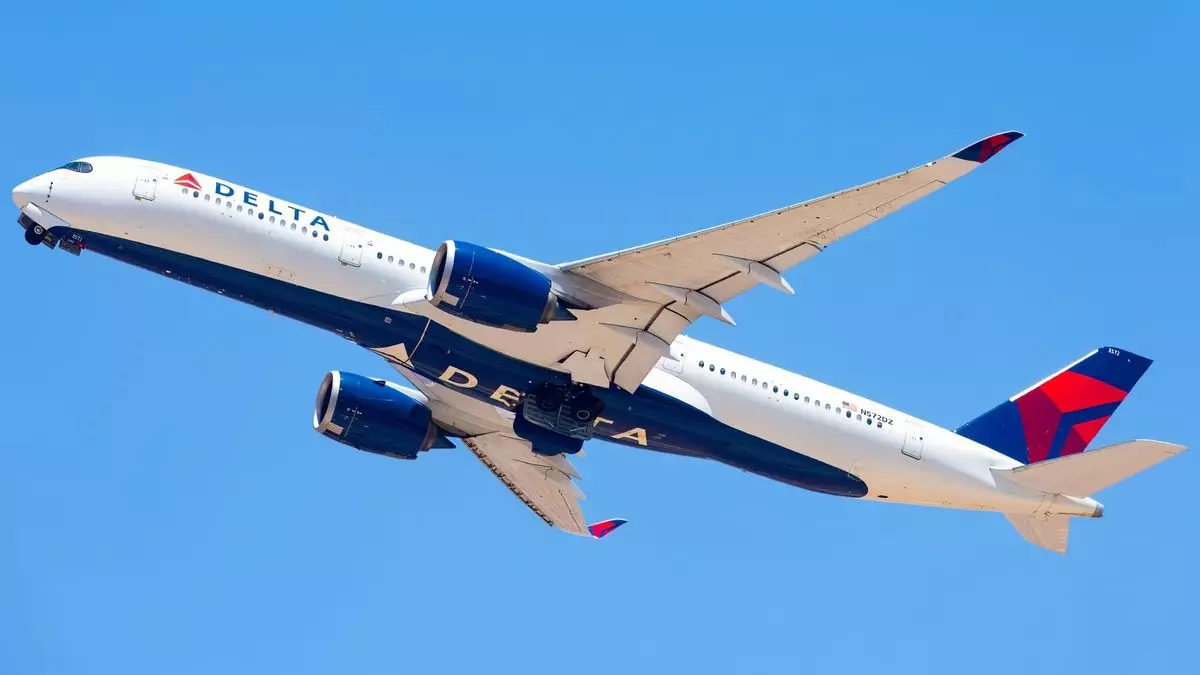Delta Air Lines, a stalwart of the aviation sector, has recently found itself navigating a storm of economic uncertainty that has dramatically altered its financial outlook. The airline has retracted its earlier forecasts for 2025, citing a volatile trade environment that has not only upended expectations but also caused a noticeable dip in consumer and corporate spending. CEO Ed Bastian’s candid admission of the situation underscores a significant reality check for an industry that had previously enjoyed a period of robust growth. The company is clearly wrestling with the implications of global trade tensions and rising tariffs that have effectively dampened the travel industry’s momentum.
The Financial Snapshot: Profit Amidst Losses
Despite the unfavorable economic climate, Delta reported a notable increase in earnings during the first quarter—earning $240 million, or 37 cents per share, compared to just $37 million, or 6 cents per share in the same period last year. This improvement seemed promising, yet it’s important to approach these figures critically. While Delta’s operating revenue grew to $14.04 billion, surpassing analysts’ expectations, the troubling fact remains that the share price took a hit even before market opening. The airline’s stock has plummeted 41% in 2023, making it a more cautious investment compared to its main competitors like American and United Airlines. This begs the question: can Delta sustain its profitability in the face of mounting uncertainties?
Capacity Adjustments: A Defensive Strategy
In response to the declining demand, Delta is making strategic moves to safeguard its financial stability. By freezing its planned capacity growth for the latter half of the year and focusing on cost management, the airline is attempting to bolster its margins and cash flow in this unpredictable environment. It is crucial to note that such decisions aren’t made lightly and reflect a strategic pivot that acknowledges the prevailing uncertainties in consumer confidence—a sentiment that has seeped into corporate travel budgets as well. This conservative stance aims to ensure that Delta remains resilient, but can it sufficiently weather the storm of decreased bookings and capital expenditures?
Looking Ahead: Uncertain Future Projections
The expectations for the second quarter indicate further challenges, with Delta projecting earnings between $1.70 and $2.30 per share. Analysts have rallied behind the airline, with predictions centering around an average of $2.21 per share. However, this tempered outlook reflects a significant decline from previous expectations. Just a month prior, Bastian expressed optimism about Delta’s trajectory, suggesting that the airline expected to see earnings above $7.35 per share by 2025. The recent pivot in both the airline’s forecasts and Bastian’s tone signals that optimism has transitioned to cautious realism.
Consumer Behavior: The Travel Demand Puzzle
What is especially troubling for Delta and other airlines is the marked consumer behavior shift in light of escalating trade tensions. As both corporate and leisure travelers appear to be pulling back on their expenditures, analysts are left to ponder whether this retreat is temporary or indicative of a longer-term trend. Delta’s recent revision of its earnings outlook serves as a distress signal, revealing that consumers are reassessing their travel plans amidst an increasingly precarious economic landscape. This consumer sentiment is crucial to understand, as it can make or break an airline’s recovery strategy.
A Delicate Balance of Confidence and Caution
Ultimately, Delta Air Lines finds itself at a pivotal crossroads. While the company is adept at navigating operational challenges, it now faces the daunting task of restoring investor confidence in a market fraught with uncertainty. The juxtaposition of recent financial gains against the backdrop of declining stock performance reveals the fragile state of the airline industry. Even as executives like Glen Hauenstein assert a belief in the company’s fundamentals, the ongoing trade war and its ripple effects on consumer behavior pose a formidable challenge. Delta’s future hinges not only on its internal strategies but also on the unpredictable economic winds that govern global trade and consumer sentiment.

